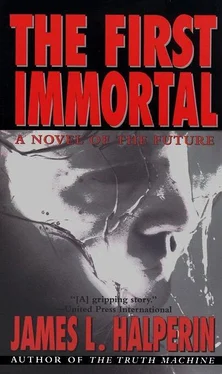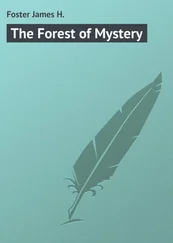Was he afraid of her? she wondered.
He always seemed friendly and sweet and solicitous, like a protective big brother. Maybe he was over her.
She would have thought that was just great several months ago, but living under the same roof, he seemed to be getting more attractive by the day. And when he sat across from her, she was forced to look at him, which was becoming quite a problem. Because now, whenever she saw him, she would get incredibly, well, aroused.
“‘I can’t define it, but I’ll know it when I see it,’” Gary Franklin Smith quoted to the class: forty-six students attending in person at Leslie Williams Auditorium on the Tufts University campus, and nearly three hundred seated elsewhere in real-time VR pods. “A United States jurist once made that remark about pornography. But it might apply equally well to artistic greatness in dance, sculpture, poetry, fiction, theater, painting—any form of aesthetic achievement. Sometimes you simply cannot define, except in vague generalities, what makes art pleasing, instructive, thought-provoking, memorable, compelling. Yet you know. You just know.
“Of course, some poor fools still depend upon that philosophy for their scientific worldview. And God help them .”
The students laughed.
“But I do think subjective analysis might actually apply to art. At least the AIs aren’t sophisticated enough to assimilate certain multidimensional art forms in objective terms, and thereby become better at it than humans. Not yet, anyway…”
After the lecture, Gary returned to his residence for a nap. He had a momentous afternoon planned, a duty he’d been anticipating and in some ways dreading. To handle the delicate task properly, he would need to be alert, well-rested.
Yet moments after climbing into bed next to his sleeping girlfriend, he suffered a change of heart.
Kimber Chevalier stirred gently, opened her dark eyes and gazed at him. “Come here, my sweet man.”
About a year earlier, Gary had managed to strike out on his own despite having arrived at the era of nanorejuvenation without money. By the time he got his own place, he’d already spent seven comfortless months living in his father’s dwelling, as if a still-dependent child. The tension between them, never inconsequential, had built upon itself. It had helped that Toby was there, and had Alice remembered who she was, the situation might have been almost bearable. But she didn’t, and it wasn’t.
In early June of 2082 Epstein had suggested that he could cash in on his residual fame by becoming an art history and philosophy lecturer. Universities, Gary had quickly discovered, were willing to pay handsomely for familiar names. And his newfound autonomy was sweet. Now he could even tolerate his father—for an hour or two at a time.
Best of all was Kimber.
She attended his first lecture and had approached him afterward. He found her the most erotic-looking woman he’d seen in his lives—both of them. Something about the way she carried herself suggested that her extraordinary beauty was genetic, not artificially induced.
She told him that for nearly a decade she’d studied the great American landscape artists: Cole, Church, Bierstadt, Moran, and that he, Gary Franklin Smith, had always been her favorite. He knew it wasn’t just flattery, because she could describe his paintings down to underlying nuances the critics had missed. Besides, his Truth Machine light had shone steady green as she spoke. Yes, he was really her favorite artist, seven decades after the worldwide craze for his work had faded. Amazing.
At first they’d become casual friends, meeting for lunch or dinner once or twice a week to talk art history. Unlike Gary, Kimber had never been frozen. She was born in Paris on June 15, 1997, almost fifty years after Gary’s birth. Her father was French, her mother Japanese.
A few weeks after they’d met, Gary and Kimber made love one afternoon. All afternoon. It was delightful, satisfying, sumptuous yet comfortable, so they’d begun sleeping together regularly. Yet both balked at the prospect of committed involvement.
Slowly, they’d begun to share more intimate stories of their lives. She told him of her first marriage, which had lasted only three years, when she was in her early twenties. Her husband had been violently jealous and abusive. She’d fled to her grandparents in Kyoto, divorced the creep, and on the rebound remarried a Japanese man.
Six years later, she’d been devastated when her second husband left her for a man.
She’d remained unwed for half a century.
Gary told Kimber about the harsh treatment he’d endured from his father, and how his mother’s death had driven him to alcohol and drugs. He described his friendship with Tobias Fiske, his loneliness and VR gambling addiction after Toby’s suspension, his recovery and obsession with his latest project, then the accident he could not remember, and his feelings of responsibility about Father Steve’s (hopefully impermanent) death.
And, of course, the continuing strife with his father.
“When you get right down to it, my life’s going okay. Everyone has problems, right? But why in heaven’s name do I react to that sonofabitch the way I do?”
He soon realized he could talk to her about anything at all; he trusted her to respect and believe in him no matter what he revealed. As the love between them grew, Gary discovered his own self-confidence returning for a second springtime as well.
Perhaps he would even complete his masterpiece someday, if he could only capture the spirit missing from it. The perfect sunrise for The Dawn of Life . But then again, during all those years of painting, he’d never seen or been able to visualize the sunrise the work required, had he? So why should he expect to find it now?
Gary sat in my office, holding Kimber’s hand, feeling grateful that she’d allowed—no, encouraged—him to sponsor this reviv, even though it threatened to disrupt what little privacy they enjoyed.
“Do you think he’ll be all right?” he asked me.
“Virginia?” I called to her through my two-way wallscreen. “Care to field that one?”
Observing us from the reviv lab on her own wallscreen, Virginia smiled in wry surrender. “Well, obviously your memory’s okay, Gary. So chances are good that he’ll be fine, too. But you never know. So if not, I hope you can handle it.”
“We can,” Kimber assured her. “We know what Alice is like, and she’s delightful—”
Gary interrupted, “Yeah, maybe about ninety percent of the time.”
“But imagine if you had no memory of your past life,” Kimber chided. “In a way, she doesn’t even know who she is. Under the circumstances, I think she’s amazing.”
“But if you’d known her before… if you’d only known her back then…”
“Which brings up another point,” Virginia offered. “Every amnesia reviv’s different. The memory loss itself, and the way it’s handled, depends on the individual. And some adapt quickly, feel grateful to be alive at all. Like Alice. But others become depressed or even resentful. As I said, you never know.”
“We’ll be ready,” Kimber said. “We have to be. Gary feels responsible for Father Steve. If he didn’t feel that way, he wouldn’t be Gary. I’m glad he wants to do this, because it’s the right thing to do. No, we’re ready to help him adjust; anything it takes, for however long it takes. Period.”
“We should know in less than a minute,” Virginia said.
“Whatever happens,” Gary said, “thanks for being here, Gin, for helping us with this reviv even though we can’t afford to pay you. However it comes out, if there’s ever anything I can do for you—”
“Actually, there is.”
Читать дальше












